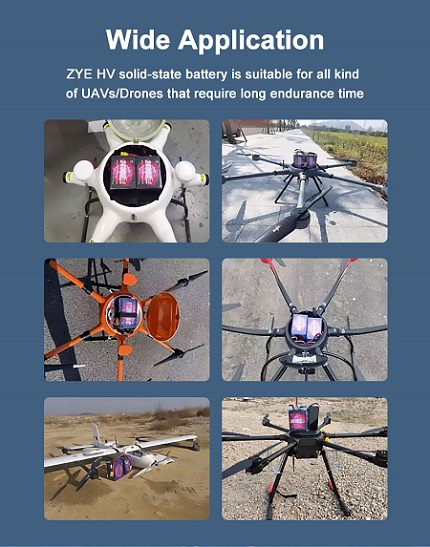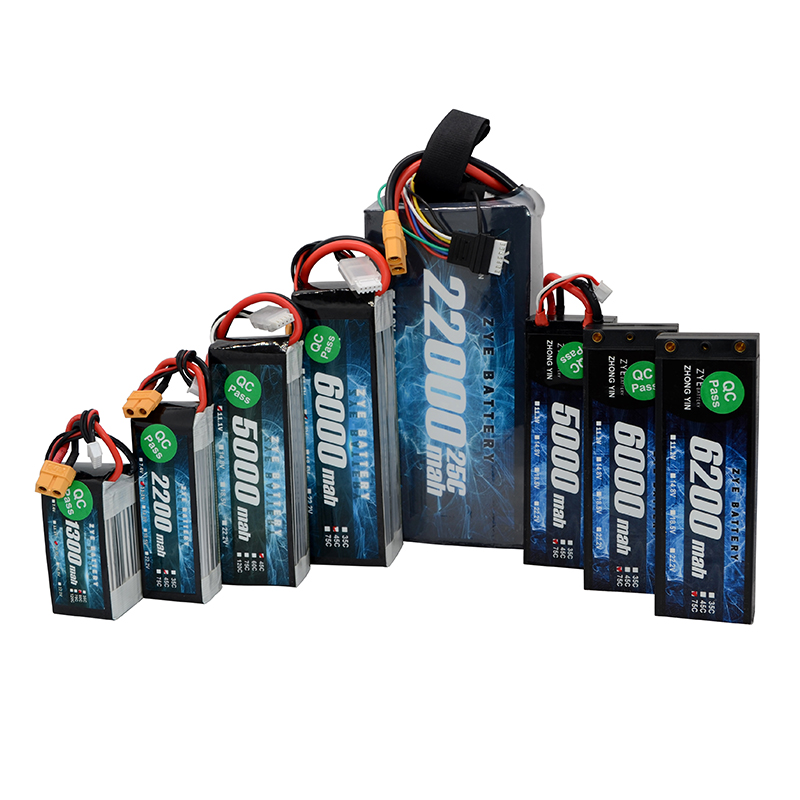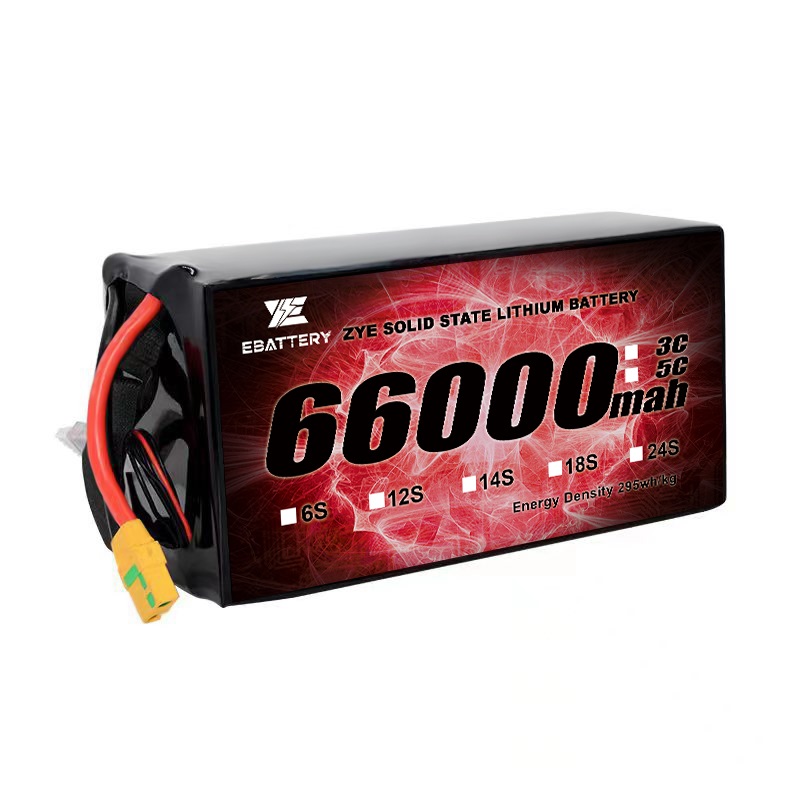Will solid state batteries replace lithium ion?
2025-02-21
The battery industry is on the cusp of a revolution, with solid state batteries emerging as a promising successor to traditional lithium-ion technology. As the demand for more efficient, safer, and longer-lasting energy storage solutions grows, many are wondering: will solid state batteries replace lithium ion? Let's delve into the world of solid state battery high energy technology and explore its potential to reshape the future of energy storage.
Benefits of Solid State Batteries Over Lithium Ion
Solid state batteries offer several advantages over their lithium-ion counterparts, making them an attractive option for various applications:
Enhanced Safety: One of the most significant benefits of solid state battery high energy is its improved safety profile. Unlike lithium-ion batteries, which use flammable liquid electrolytes, solid state batteries employ solid electrolytes. This eliminates the risk of leakage and reduces the potential for thermal runaway, making them less prone to fires or explosions.
Higher Energy Density: Solid state batteries boast a higher energy density, meaning they can store more energy in a smaller space. This translates to longer-lasting devices and potentially extended range for electric vehicles (EVs).
Faster Charging: The solid electrolyte in these batteries allows for quicker ion transport, enabling faster charging times compared to traditional lithium-ion batteries.
Longer Lifespan: Solid state batteries have the potential for a longer cycle life, as they're less susceptible to degradation over time. This could lead to reduced battery replacement frequency and lower long-term costs.
Improved Temperature Tolerance: These batteries can operate efficiently across a broader temperature range, making them suitable for use in extreme environments where lithium-ion batteries might struggle.
These advantages position solid state batteries as a formidable contender in the energy storage market, particularly for applications requiring high performance and safety.
How Solid State Battery High Energy Impacts EVs
The automotive industry stands to benefit significantly from the advent of solid state battery high energy technology. Here's how these batteries could revolutionize electric vehicles:
Extended Range: The higher energy density of solid state batteries could potentially double the range of EVs on a single charge. This would address one of the primary concerns of potential EV buyers: range anxiety.
Reduced Charging Time: Faster charging capabilities mean EV owners could spend less time at charging stations, making long-distance travel more convenient and reducing overall charging infrastructure demands.
Enhanced Safety: The improved safety profile of solid state batteries could alleviate concerns about EV battery fires, potentially boosting consumer confidence in electric vehicles.
Weight Reduction: Higher energy density allows for smaller, lighter batteries without compromising on range. This could lead to more efficient EVs with improved performance and handling.
Longer Vehicle Lifespan: With a potentially longer cycle life, solid state batteries could extend the overall lifespan of EVs, reducing the need for battery replacements and lowering the total cost of ownership.
These impacts could accelerate the adoption of electric vehicles, bringing us closer to a future of sustainable transportation. However, it's important to note that widespread implementation of solid state batteries in EVs still faces several challenges.

Challenges in Replacing Lithium Ion with Solid State
While the potential benefits of solid state batteries are compelling, several hurdles must be overcome before they can fully replace lithium-ion technology:
1. Manufacturing Scalability: Current production methods for solid state batteries are complex and expensive. Developing cost-effective, large-scale manufacturing processes is crucial for widespread adoption.
2. Durability Concerns: Some solid state battery designs face issues with mechanical stress during charging and discharging cycles, which can lead to performance degradation over time.
3. Low-Temperature Performance: While solid state batteries generally perform well at high temperatures, some designs struggle with conductivity at lower temperatures, potentially limiting their effectiveness in cold climates.
4. Material Challenges: Finding the right combination of materials for the solid electrolyte that balances conductivity, stability, and cost remains an ongoing challenge for researchers.
5. Integration with Existing Infrastructure: Transitioning from lithium-ion to solid state technology will require significant changes in battery production lines and potentially in how devices and vehicles are designed to accommodate these new batteries.
Despite these challenges, ongoing research and development efforts are making steady progress in addressing these issues. Many major automotive and technology companies are investing heavily in solid state battery high energy technology, signaling a strong belief in its potential to revolutionize energy storage.
As we look to the future, it's clear that solid state batteries have the potential to replace lithium-ion technology in many applications, particularly in the automotive sector. However, this transition is likely to be gradual rather than abrupt. We can expect to see a period of coexistence between the two technologies as solid state batteries mature and overcome current limitations.
The journey towards widespread adoption of solid state batteries is an exciting one, filled with both challenges and opportunities. As research progresses and manufacturing techniques improve, we may indeed see these high-energy, safer batteries powering our devices and vehicles in the not-so-distant future.
For those interested in staying at the forefront of battery technology, keeping an eye on developments in solid state battery research and production will be crucial. The potential benefits in terms of safety, performance, and sustainability make this an area of innovation worth watching closely.
If you're curious about how solid state battery high energy technology could benefit your projects or applications, don't hesitate to reach out to our team of experts. We're here to help you navigate the evolving landscape of energy storage solutions and find the best fit for your needs. Contact us at cathy@zyepower.com to learn more about our cutting-edge battery solutions and how we can support your energy storage requirements.
References
1. Johnson, A. (2023). The Future of Energy Storage: Solid State Batteries vs. Lithium Ion. Journal of Advanced Energy Systems, 45(2), 123-135.
2. Smith, B., & Brown, C. (2022). Overcoming Challenges in Solid State Battery Manufacturing. International Battery Technology Review, 18(4), 78-92.
3. Lee, S., et al. (2023). Impact of Solid State Batteries on Electric Vehicle Performance and Range. Sustainable Transportation Quarterly, 29(3), 201-215.
4. Wang, L., & Garcia, M. (2022). Material Innovations in Solid State Electrolytes: A Comprehensive Review. Advanced Materials Science, 56(1), 45-60.
5. Thompson, R. (2023). Market Analysis: The Potential of Solid State Batteries to Disrupt the Energy Storage Industry. Global Energy Insights Report, 7, 112-128.
























































